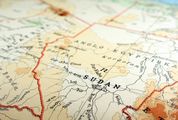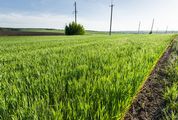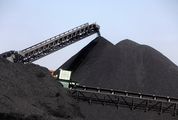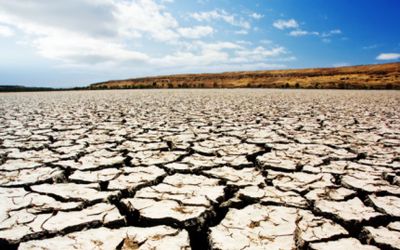A TRADE union has warned that farmers in the Western Cape intend to use the prolonged dry spell as a pretext to shed jobs.
The government has already declared KwaZulu-Natal, North West, Mpumalanga, Limpopo and Free State drought disaster areas.
On Tuesday, the City of Cape Town announced that it had intensified water restrictions as the drought had left city dam levels lower than normal. The restrictions started on January 1.
The curbs had been initiated to "preserve the long-term sustainability of the resource", the city said.
It said although it would increase prices to encourage greater water efficiency, customers’ bills should remain at a similar rand value if they cut usage.
Late last year, the Western Cape cabinet requested the government to also declare the province a drought disaster area. A request was also made for disaster relief to assist farmers.
The agricultural sector, among the Western Cape’s most important, has been hard-hit by water shortages.
"As a result of the drought, fewer seasonal workers might be needed, but as far as financially possible, the agricultural sector will do everything in its power to keep permanent workers on the farm," said Carl Opperman, CE of Agri Western Cape.
However, Nosey Pieterse, the chief negotiator for the Rural and Allied Workers Union, which represents some farm workers in the province, said farmers wanted to use the drought as "an excuse to shed jobs".
He said: "We have been informed of the possible consequences of the drought and studied it ... from what we have seen the Swartland is the only area that has been seriously affected by the drought in the Western Cape ...
"Government has said it will support farmers, so we will be calling on them to only assist those farmers who secure the jobs of workers ... farmers face a drought once in a while and workers are in a drought most of the time because of low wages and bad working conditions, so everything should be done to protect the farm workers."
Mr Opperman said the West Coast District and Sentraal Karoo were especially hard-hit, but the entire province was affected because of low dam and ground-water levels.
The current heatwave is also scorching away the little pasture left.
"The shortage of fodder is not only affecting our red meat producers, but is also putting the dairy and wool industries under severe pressure," Mr Opperman said.
"The drought situation across the country resulted in fodder being very scarce and producers are paying up to R1,000 per tonne more for feed than the previous year.
"Producers who can no longer afford to buy feed have begun to sell their herds at below average prices to already crowded feedlots," he said.
With Bloomberg























Change: 0.11%
Change: 0.16%
Change: -0.42%
Change: 0.35%
Change: -0.54%
Data supplied by Profile Data
Change: 0.00%
Change: 0.00%
Change: 0.11%
Change: 0.00%
Change: 0.00%
Data supplied by Profile Data
Change: -0.06%
Change: 0.00%
Change: -0.03%
Change: 0.07%
Change: -0.11%
Data supplied by Profile Data
Change: 0.00%
Change: 0.00%
Change: 0.00%
Change: 0.00%
Change: 0.00%
Data supplied by Profile Data